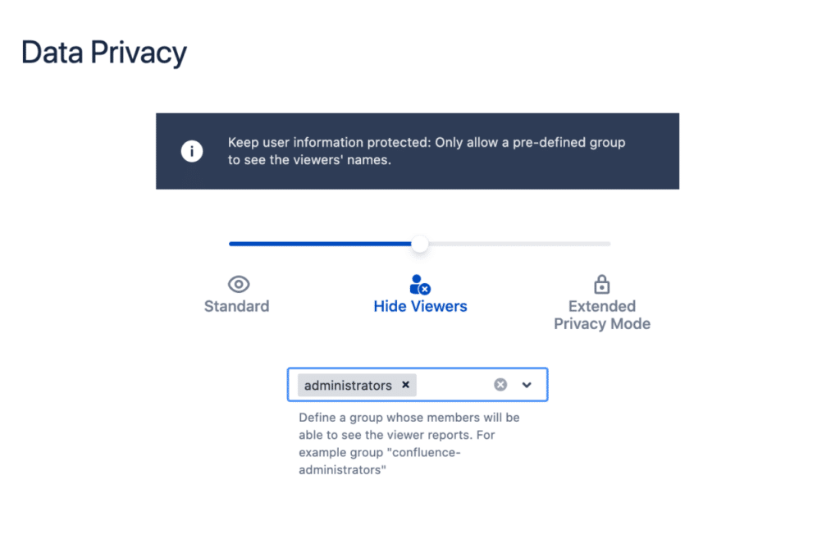
Data Residency: A Strategic Pillar of Digital Trust in Atlassian Cloud
Learn why data residency is essential for compliance, governance, and digital trust in your Atlassian Cloud environment — and how to get it right.
Data Residency A Strategic Pillar of Digital Trust in Atlassian Cloud

As more organizations move their collaboration tools and critical business operations to the cloud, one key consideration is increasingly shaping digital strategy and procurement decisions: data residency.
Where your data lives — and who has jurisdiction over it — has a direct impact on your legal compliance, security posture, and employee privacy. For companies using Atlassian Cloud tools like Jira and Confluence, understanding data residency isn’t just a technical detail; it’s a matter of strategic importance.
This article will help you understand what data residency is, why it matters, how it intersects with data privacy regulations, and what practical steps you can take to align your Atlassian Cloud environment with your organization’s compliance goals.
What is Data Residency?
Data residency refers to the physical or geographic location where an organization’s data is stored and processed. In the cloud context, this means the data centers where vendors like Atlassian host your content, including files, tickets, pages, and potentially user data.
It’s closely tied to, but not the same as:
- Data sovereignty relates to the legal frameworks governing data in a specific country.
- Data localization is a stricter form that may require specific data to never leave a region or country.
Why Data Residency Matters
For mid-to-large enterprises, the implications of data residency go beyond simple geography. Data residency affects multiple domains:
Atlassian Cloud Plans Supporting Data Residency
Atlassian now includes data residency controls in all paid cloud plans:
- Cloud Standard: Offers baseline data residency support
- Cloud Premium: Adds advanced admin insights, automation, and reliability
- Cloud Enterprise: Includes fine-grained admin control, sandboxing, and organization-wide data policies
Supported Regions

As of 2024, Atlassian allows you to pin your product data to the following regions:
- United States
- European Union (Dublin, Frankfurt)
- Germany (Frankfurt)
- Switzerland (Zurich)
- United Kingdom (London)
- Canada (Central)
- Australia (Sydney)
- Japan (Tokyo)
- Singapore
- South Korea
- India
This allows in-scope data like Jira issues, Confluence pages, and attachments to remain within a specific jurisdiction.
What Data Is Covered by Atlassian’s Data Residency?
It’s important to note that not all data is subject to data residency controls. Atlassian generally supports residency for:
- Product content (Jira issues, Confluence pages)
- User-generated attachments
- Certain metadata (e.g., comments, descriptions)
However, app data (data generated by third-party Marketplace apps) often resides outside of these regions unless the app developer specifically supports data residency.
How Communardo Helps
At Communardo Products, we build Marketplace apps that are enterprise-ready, secure, and compliant with modern cloud standards. We are committed to supporting data residency and cloud security requirements.
The App Data Gap — and What It Means for You
Many enterprises heavily rely on Marketplace apps to extend the functionality of Atlassian products. Yet, not all app vendors support data residency. This means a customer who has pinned their Jira instance to the EU might still have app data stored in the U.S. or another non-compliant region. This gap introduces potential compliance and governance risks and is a critical area to investigate when vetting apps.
What to Consider When Making Decisions About Data Residency
When evaluating your cloud environment, here are some key considerations:
- Audit Current Data Locations: Use Atlassian’s admin tools to check where your core product data resides. Review your app portfolio and request data residency statements from vendors.
- Understand Regulatory Obligations: Map your organization’s compliance requirements (GDPR, CCPA, etc.) to the data stored in Atlassian tools.
- Engage with Stakeholders: Bring together legal, compliance, IT, and procurement to align on your organization’s data residency needs.
- Plan for App Dependencies: Ensure key Marketplace apps either support data residency or have a roadmap to do so. Consider alternative solutions if an app doesn’t meet residency requirements.
- Monitor Atlassian’s Roadmap: Atlassian is actively expanding its data residency capabilities. Stay informed on new supported regions or admin tools.
Final Thoughts
Data residency is no longer a niche concern. It is a fundamental part of operating securely and responsibly in the cloud. As your organization evaluates or expands its use of Atlassian Cloud, take the time to understand where your data lives, including both Atlassian-hosted content and third-party app data.
With a clear data residency strategy, you can stay compliant, build customer trust, and prepare your business for the future of cloud collaboration.
Need help evaluating your Atlassian Cloud setup? Communardo can help you navigate data residency requirements and select apps that align with your compliance goals. Let’s build a secure, compliant future in the cloud — together.
